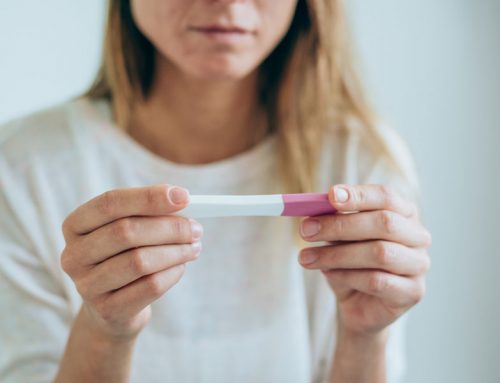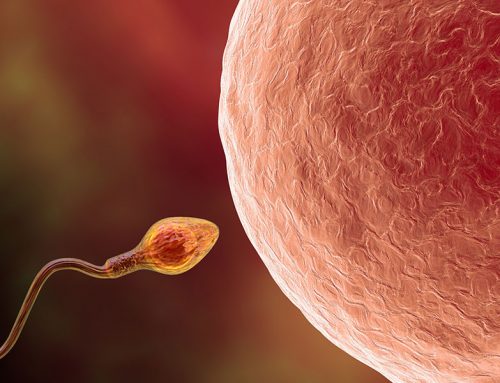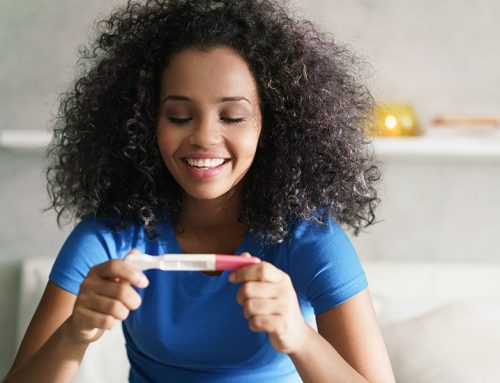Fertility. Female fertility. CoQ10 supplementation can be a low-cost and low-risk solution to female infertility difficulties caused by delayed childbearing and by exposure to disruptive environmental chemicals. This is the conclusion of a review of experimental and clinical study evidence [Hornos-Carneiro 2023].

Guest author on this article is Dr. Ross Pelton, pharmacist, health educator, and author of the book Rapamycin: Rapamycin, mTOR, Autophagy & Treating mTOR Syndrome, available from amazon.com both as a paperback and as a Kindle book.
Note: Approximately 11% of women of reproductive age in the United States have fertility problems. Worldwide, approximately 15% of couples (about 48.5 million couples) experience reproductive issues [Hornos Carneiro 2023].
Background: Harmful Free Radicals and Oxidative Stress
In very simple terms, our cells break down glucose and use oxygen to produce ATP energy. This important metabolic process is known as cellular respiration. The process also produces oxygen and nitrogen reactive species, more popularly known as free radicals.
These free radicals do have recognized regulatory functions in the cells. However, when the cellular levels of unstable free radicals greatly exceed the levels of protective antioxidant systems, then the harmful free radicals cause oxidative damage to DNA in the cells’ nucleus and in the mitochondria as well as to cellular membrane lipids and to proteins [Hornos-Carneiro 2023].
The resulting condition is known as oxidative stress. Fortunately, there are enzymatic and non-enzymatic antioxidants that help to keep the harmful free radicals neutralized.
Coenzyme Q10 is a substance that is synthesized in nearly all human cells and tissues. It plays an essential role in the process of ATP energy generation. It is also a lipid-soluble antioxidant found in almost all human cells. CoQ10 supplementation improves reproductive health through the scavenging of harmful free radicals [Hornos-Carneiro 2023].
Safety and Efficacy of CoQ10 Supplementation
CoQ10 supplementation in the range of 100-300 mg/day is safe and well-tolerated. No serious side effects of chronic CoQ10 supplementation have ever been reported. However, the safety of CoQ10 supplementation in pregnant and lactating women has not been fully established in clinical trials. Therefore, pregnant and lactating women should consult with a physician about taking a CoQ10 supplement [Hornos-Carneiro 2023].
Health Benefits of CoQ10 Supplementation
There is research evidence for the use of CoQ10 supplements in certain conditions [Mayo Clinic 2020]:
- Heart conditions, congestive heart failure in particular [Mortensen 2014]
- Diabetes
- Hypertension
- Migraine headaches
- Statin-induced myopathy
Coenzyme Q10 Promotes Female Reproductive Health
Hornos-Carneiro et al [2023] have reviewed the role of Coenzyme Q10 in the following conditions affecting female reproductive health:
- Maternal age and oxidative stress
Fertility declines with increased age in both men and women. One of distinguishing characteristics of reproductive aging is reduced energy metabolism in the reproductive tissues. The effects of increased age are more evident in women. Older women have fewer eggs available and are more susceptible to medical conditions that result in infertility.
Mitochondrial dysfunction and oxidative stress have both been associated with the maternal age effect. Insufficient CoQ10 levels are associated with the development of both these conditions [Hornos-Carneiro 2023]
- Reprotoxicity
Chemicals that disrupt endocrine function are omnipresent in the environment. These chemicals act as hormone agonists or antagonists. They induce epigenetic modifications in hormone producing cells or hormone-responsive cells. They disrupt hormonal development and homeostasis. Moreover, some of these environmental chemicals impair mitochondrial bioenergetics and generate oxidative damage.
Animal studies have shown that CoQ10 supplementation counteracts the reproductive toxicity of some environmental chemicals and decreases the extent of mitochondrial dysfunction and oxidative stress [Hornos-Carneiro 2023].
Note: Reprotoxicity definition: environmental substances influence reproductive capacity by reducing fertility or causing sterility.
Conclusion: Female Fertility and CoQ10 Supply
The decline in human female fertility is associated, in part, with increasing age and with exposure to environmental toxins.
The decline in human female reproductive potential is likely a result of cellular mitochondrial dysfunction and oxidative stress.
Clinical study evidence demonstrates protective effects of CoQ10 supplementation on female reproductive health [Hornos-Carneiro 2023].
CoQ10 supplementation improves female reproductive performance through the scavenging of harmful free radicals [Giannubilo 2018].
CoQ10 supplementation is safe, well-tolerated, and affordable [Mortensen 2014].
It is important to select a CoQ10 supplement with scientific documentation of the product’s absorption and bioavailability [Lopez-Lluch 2019]. Many CoQ10 products have notoriously low absorbability due to the formation of crystals. I only recommend crystal-free CoQ10 products.
Sources
Giannubilo SR, Orlando P, Silvestri S, Cirilli I, Marcheggiani F, Ciavattini A, Tiano L. CoQ10 Supplementation in patients undergoing IVF-ET: The relationship with follicular fluid content and oocyte maturity. Antioxidants (Basel). 2018 Oct 13;7(10):141.
Hornos Carneiro MF, Colaiácovo MP. Beneficial antioxidant effects of Coenzyme Q10 on reproduction. Vitam Horm. 2023;121:143-167.
López-Lluch G, Del Pozo-Cruz J, Sánchez-Cuesta A, Cortés-Rodríguez AB, Navas P. Bioavailability of coenzyme Q10 supplements depends on carrier lipids and solubilization. Nutrition. 2019 Jan;57:133-140.
Mayo Clinic Staff. Coenzyme Q10. 2020. Retrieved from https://www.mayoclinic.org/drugs-supplements-coenzyme-q10/art-20362602
Mortensen SA, Rosenfeldt F, Kumar A, Dolliner P, Filipiak KJ, Pella D, Alehagen U, Steurer G, Littarru GP; Q-SYMBIO Study Investigators. The effect of coenzyme Q10 on morbidity and mortality in chronic heart failure: results from Q-SYMBIO: a randomized double-blind trial. JACC Heart Fail. 2014 Dec;2(6):641-9.
The information presented in this review article is not intended as medical advice and should not be used as such.









Leave A Comment